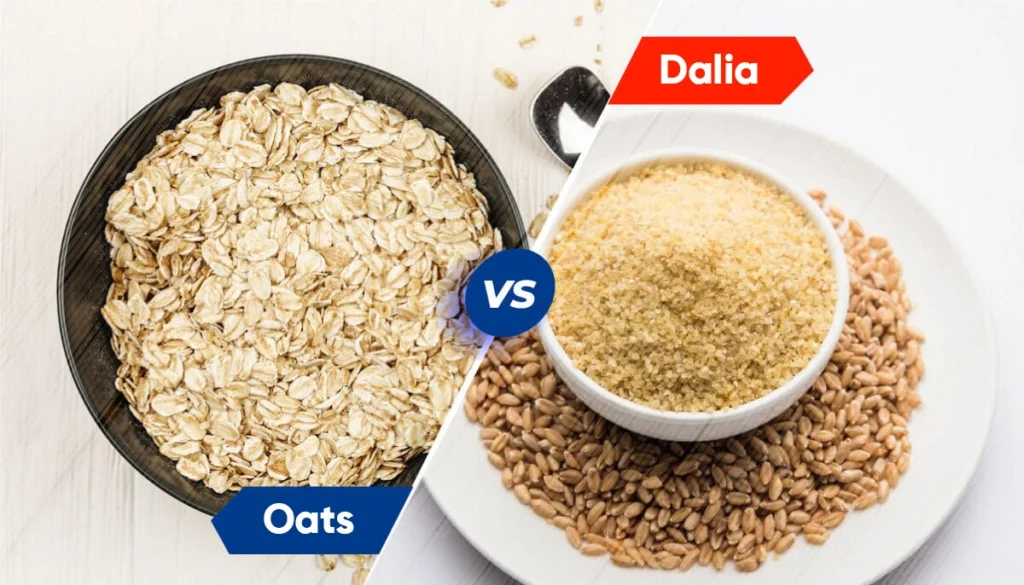Oats vs. Dalia: A Healthy Breakfast Comparison
Both oats and dalia (broken wheat) are widely recognized as nutritious breakfast choices, each offering unique health benefits. Including either in your daily diet can contribute positively to overall health, especially when prepared mindfully.
Oats: A Nutritional Powerhouse
Oats are naturally gluten-free and packed with essential nutrients such as vitamins, minerals, antioxidants, and dietary fiber. One of their most notable components is *beta-glucan*, a type of soluble fiber known for its ability to promote gut health, enhance feelings of fullness, and regulate blood sugar levels. Beta-glucan also helps reduce cholesterol absorption in the bloodstream, which supports heart health. Oats may improve insulin sensitivity, particularly in individuals with type 2 diabetes. Furthermore, their high fiber content aids digestion and can relieve constipation, making them an excellent choice for digestive wellness.
Dalia: A Wholesome Grain Alternative
Dalia, made from cracked or broken wheat, is a fiber-rich, slow-digesting complex carbohydrate. While it is not suitable for individuals with gluten intolerance or celiac disease, it offers several health advantages. The slow digestion of dalia helps maintain stable blood glucose levels, making it beneficial for people with diabetes. Dalia is also rich in dietary fiber, supports healthy bowel movements, and acts as a natural laxative. Additionally, it provides a decent amount of plant-based protein, which supports muscle growth and repair. Another lesser-known benefit is its anti-inflammatory property, attributed to betaine, which helps reduce homocysteine levels and chronic inflammation.
Nutritional Comparison (Per 100g):
Oats: 379 calories, 13.2g protein, 10.1g fiber, 6.5g fat, 0.99g sugar, 6mg sodium, 362mg potassium, 67.7g carbohydrates
Dalia: 342 calories, 12g protein, 18g fiber, 1.3g fat, 0.4g sugar, 17mg sodium, 410mg potassium, 76.6g carbohydrates
Weight Loss and Dietary Choices
Both oats and dalia can support weight management goals due to their high fiber content and ability to promote satiety. Oats may offer a slight edge due to lower carbohydrate and fat content. However, both can be part of a balanced diet. Ultimately, the better choice depends on personal dietary needs and preferences.
In conclusion,Whether you prefer oats or dalia, both are excellent additions to a healthy diet when consumed in appropriate portions and prepared using wholesome methods like boiling or steaming. Including either regularly can contribute to better digestion, improved energy levels, and overall well-being.
1. Which grain is better for people with gluten intolerance?
Oats are better because they are naturally gluten-free, unlike dalia.
2. What makes oats beneficial for heart health?
Oats contain beta-glucan, which helps lower cholesterol and supports heart health.
3. Which option has more fiber per 100g—oats or dalia?
Dalia has more fiber, with 18g compared to oats’ 10.1g.

